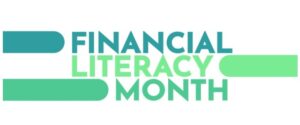
We often focus on physical and mental well-being, but there’s another crucial aspect that profoundly impacts our lives: financial wellness. More than just the numbers in your bank account or the performance of your investments, financial wellness is fundamentally defined by your relationship with money. The good news is it isn’t solely dependent on income. It encompasses your ability to comfortably meet your financial needs today, feel secure about your future, and have the freedom to make choices that allow you to enjoy your life now and down the road.
The four pillars of financial wellness
To better understand financial wellness, it’s often broken down into four key elements that build upon each other:
Control over day-to-day finances: This means understanding your income and expenses, effectively managing or paying off debt, and aligning your spending with your financial capacity. In other words, living within your means and knowing where your money goes.
Capacity to absorb financial shocks: This involves having sufficient savings to handle unexpected emergencies, such as a job loss, or major home or car repairs. A robust “rainy day” fund acts as a vital safety net.
Being on track to meet financial goals: Financial wellness means actively saving and investing for both short-term aspirations (like a vacation or a down payment) and long-term objectives (such as retirement or a child’s education).
Money freedom to make happy choices: This pillar refers to having the time and resources to spend on things that genuinely bring you enjoyment and align with your values, without regret or misery.
Financial wellness is a practice
Financial wellness isn’t a final destination but rather a way of living day-to-day. When you achieve financial wellness, it manifests in several tangible ways:
Confidence and peace of mind: You feel confident about your financial future and your ability to handle life’s unexpected challenges. This can lead to improved sleep, more energy, stronger relationships, and better overall mental and emotional health.
Clarity and control: You have a clear understanding of your personal finances and a plan to manage them. You’re in control of your money, rather than it controlling you.
Resilience: You’re quick to bounce back from any financial setbacks because you have the right resources and strategies in place, like an emergency fund and insurance coverage.
Purposeful spending: You align your spending with your values and long-term goals, allowing you to enjoy life’s pleasures without guilt or overspending.
Your path to financial wellness
So, how do you cultivate this state of financial well-being? It often begins with small, consistent steps. Here are practical actions to consider:
Start with a goal: Think of this as your financial roadmap, helping you balance and prioritize both short- and long-term goals like retirement, significant purchases, or education funding.
Get to know your finances: Understand where your money comes from and where it goes. Create a realistic budget, categorizing expenses as non-discretionary (needs) and discretionary (wants). Sticking to a budget is crucial for making informed decisions and freeing up funds for savings or debt repayment. Keep an eye on your debt. Not all debt is bad, but high-interest consumer debt can be a major stressor. Develop a plan to manage it well or to pay it down if it’s high.
Shock-proof your finances: An emergency fund and insurance are the two parts of financial resilience. Aim to save three to six months of living expenses in an easily accessible emergency fund to cover unexpected costs. Along with that, protect yourself and your loved ones from unforeseen financial disasters by having adequate health, home, auto, and life insurance.
Put your money to work: Make your money pull its weight and work for you. There are a few ways you can do that. The first is to save and invest. The earlier you start the more compounding interest will work in your favour. Maximize contributions to long-term savings plan accounts like RRSPs, TFSAs, and RESPs, and take advantage of employer-matching programs. These tax-sheltered accounts will also help with the second way to put your money to work, which is to optimize your taxes. Don’t forget to explore other tax savings strategies like income splitting and tax-loss selling. Lastly, make sure all the hard work doesn’t go to waste by putting a well-thought-out estate plan in place.
Maintain good financial habits: Take time to regularly check all your financials, including:
Review bank statements
Paying bills
Cross-referencing spending with your budget
Tracking your progress toward goals
Examine your credit report
Financial wellness vs. financial literacy
While closely related, financial wellness is not the same as financial literacy. Financial literacy refers to your knowledge and understanding of financial concepts, such as budgeting, investing, loans, and credit management. Financial wellness, however, goes a step further. It’s about applying that knowledge effectively and incorporating your behaviours, attitudes, and emotional relationship with money to achieve true financial stability and security. You can be financially literate without being financially well if you don’t implement that knowledge in a way that aligns with your personal goals and values.
Ultimately, improving your financial wellness involves looking at your present financial situation with a clear view toward your future, and making conscious choices that align your money with the life you want to live.
It’s important to recognize that personal feelings and beliefs about money matter immensely. Two people with similar bank balances might feel vastly different about their financial health based on their perceptions and emotions. Financial wellness, therefore, combines solid financial stability with how you actually feel about your money situation.
Debt, especially with the cost of living these days, can sneak up on you. If you find yourself struggling to keep up with credit card payments or other debt, we can help. Call for a free consultation with one of our trained Credit Counsellors.






